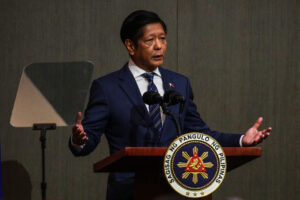
Marcos expects to reap benefits from Australia’s pivot to Southeast Asia
PRESIDENT Ferdinand R. Marcos, Jr. said on Wednesday that he is looking forward to a bigger Australian footprint in the region in the wake of Canberra’s economic pivot to Southeast Asia to better leverage the free trade agreement (FTA) which it and New Zealand signed with the Association of Southeast Asian Nations (ASEAN).
In a speech at the Asean-Australia special summit in Melbourne, Mr. Marcos also invited Australia to invest in the Philippines’ green-economy initiatives.
Mr. Marcos was quoted as saying by his press office in Manila that he looks forward to Australian participation in developing Philippine agriculture, infrastructure, health, tourism and the digital economy.
Australia’s Southeast Asia Economic Strategy to 2024 seeks to broaden and deepen Canberra’s economic ties with ASEAN.
Mr. Marcos noted the signing by his government last month of the second protocol to the FTA among ASEAN, Australia, and New Zealand, which he said would benefit micro, small and medium enterprises (MSMEs) and boost the digitalization efforts of member countries.
The second protocol boosts MSMEs’ participation in international trade by “improving their access to markets and participation in the global value chains, as well as promoting the use of e-commerce,” he said.
The FTA should be responsive to “multidimensional challenges in the business environment and complement region-to-region efforts to strengthen supply chain resilience.”
Like the Philippines, Australia is a member of the Regional Comprehensive Economic Partnership, thought to be the world’s largest FTA.
Mr. Marcos, meanwhile, reiterated the Philippines’ offer to host the Board of the United Nations’ Loss and Damage Fund, which was approved last year.
“Hosting the Board in the Philippines would showcase global commitment to inclusivity, ensuring that the voices and experiences of the most affected countries are heard and considered in shaping the most urgent of global climate policies,” he said.
Mr. Marcos also urged Australia to pursue more green projects with the Philippines.
In 2022, the Philippines amended the implementing rules and regulations of the Renewable Energy Act of 2008 to allow 100% foreign ownership of renewable energy projects. — Kyle Aristophere T. Atienza



